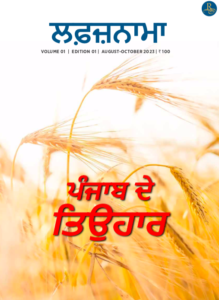DO YOU CARRY A PRICE TAG WITH YOU?

Nowadays people know the price of everything but the value of nothing. Oscar Wilde
An old friend recently dropped by on a Sunday morning. As we sat together for a sumptuous breakfast, it was natural to catch up on the missing times. Within minutes it became difficult for me to remain focused on our conversation as everything and anything about her lifestyle came with a price tag attached to it– the kitchen top in her house to the table top in her workplace; the handbag on her shoulder to the schoolbag of her kids; the basketball court for the disadvantageous kids she was supporting through her NGO to the means of transportation for her staff that she hired in her start up. I was reminded of the iconic scene in the movie 3 Idiots where Baba Ranchhod Das Shyamal Das Chanchad urf Rancho, the adorable character played by Aamir Khan forbids Kareena Kapoor from marrying her prospective groom because he was a ‘walking and talking Price Tag’.
It is by and large a universal human tendency to rely on labels and categories while making judgements about things and people. The so-called luxury brands thrive on this particular tendency of the human mind. They are ‘luxury’ not because they offer something out-of-the-world but because they are out of bounds for the common man. Dutch designer Marcel Wanders believes, “Luxury starts where functionality ends and where the true value is personal and so has no price or reason.” The common man yearns for the items displayed in the windows of their elite and exclusive outlets and if he takes the plunge by stepping inside one of them, his heart skips numerous beats while counting the number of zeros exhibited on the price tag. And yes, at such places you cannot help checking the price tag.
How often do you ask the salesman to retain the price tag while he is about to gift wrap the expensive item you selected for your boss or some acquaintance, so that the person receiving the gift should know the amount you spent. At times our choice of gift is equally proportionate to the social or economic status of the receiver of the gift. These are the times we forget that it is the intent of giving that is more important than the expense shelled out for the gift. Remember O. Henry’s story ‘The Gift of the Magi’ where young lovers Jim and Della sacrifice their choicest possession to buy a Christmas present for each other. Della sells her prized hair to buy a beautiful chain for Jim’s gold watch and Jim sells his favorite watch to buy a set of combs for Della’s hair. Don Swann, American Visual Artist puts forth a similar question, “Is the price of happiness not weighed in the cost of commitment, the value of life’s experience in the plurality of existence and measured in a love shared?”
My story ‘Price Tag’ from my latest collection Easter Lilies and Other Stories ends on a similar note where the protagonist, who is of a firm opinion that ‘everything in life comes with a price’, ultimately modifies her statement. ‘Everything in life comes with a price, however there are things that are priceless!’















